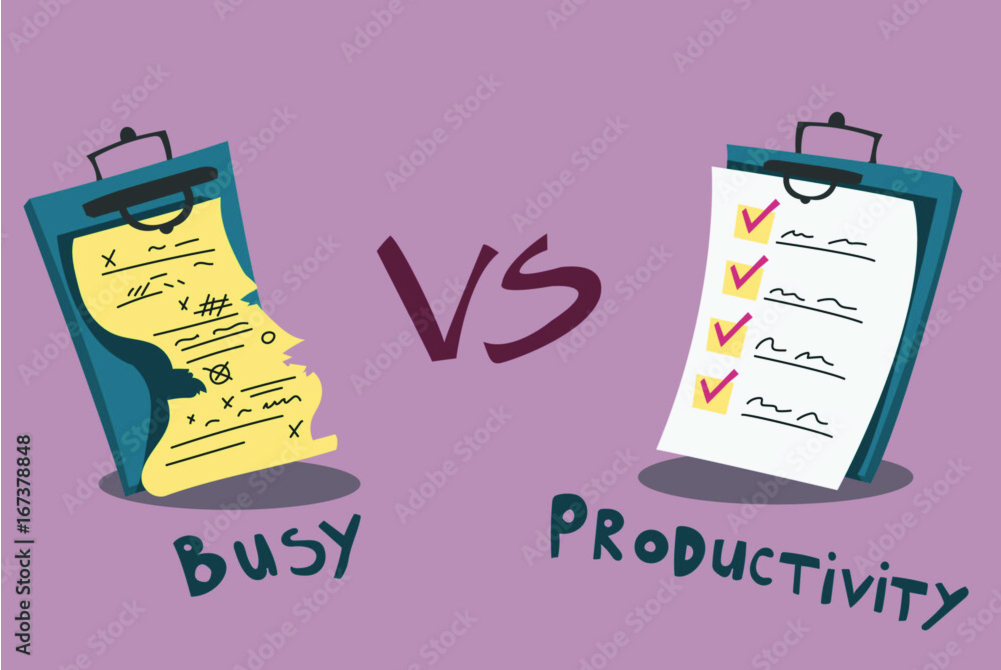Being busy versus being productive
Work comes down to busy work vs. productive work. Busy work does not move the needle. It keeps us standing in place. I believe this type of work has to be eliminated as much as possible. Productive work on the other hand, propels us forward. Productive work directly results in greater job satisfaction, less stress, and more money. Here are tips to consider that I believe can greatly increase personal productivity.
The 80/20 rule. This to me is the ultimate productivity game-changer. The 80/20 rule states that 80 percent of results come from 20 percent of effort. This allows for more productive work, and less busy work. What is that particular type of work that is truly productive? What tasks generate 80 percent of the results? Identify and focus on those tasks as much as possible, and delegate everything else.
Delegate. If someone else can do something 70 percent as well as you can, delegate it. As lawyers, we want to do everything ourselves, or we feel the work won’t get done the right way. For me, “done” beats “perfect” every time. Let go of busy work by delegating. When handled correctly, delegating provides a boost to your productivity while also lowering stress levels. When delegating anything, be clear on the following: how the work should be done; what a successful outcome will look like; the deadline for completion.
Scripting. For me, Sunday mornings are a great time to script my week. This ensures that the important, productive things I need to do are time blocked in advance on my calendar. Jim Rohn, the classic success writer and speaker, once said (and this really stuck with me) “Run the day, or the day runs you.” Plan out your week in advance as much as possible so that the productive work gets done.
Parkinson’s law. This is a fascinating axiom that states that work will expand to fill the time assigned to it. For example, if you think an opposition to a motion for summary judgment will take three hours, then it will take at least that amount of time. But if instead you give that task a two-hour window to complete, it will likely take two hours. Give this a try and see what happens.
Limit distractions. The two primary distractions and impediments to peak productivity are the phone and email.
The telephone. There is nothing worse than being bombarded with phone calls when you are trying to focus deeply on an upcoming deposition, trial strategy, etc. The brain needs time to go deep into a focused state and does not respond well to constant interruptions. As my practice started to grow, I realized that it was frustrating to constantly answer random, unplanned calls. The phone was draining my ability to focus and my time. Now, I don’t take unscheduled calls. I explain this protocol in my initial welcome letter to new clients (always send a letter to new clients warmly welcoming them, and in that letter name the person who will be handling their file). This phone policy applies not only to clients, but attorneys, insurance adjusters and whoever else calls. If the call is not on my calendar, a team member will schedule me to call the person back the following day at a specific time. This saves much time and avoids unending phone tag.
Email. I am a recovering email addict. I used to check email constantly and think that by checking and responding, I was being productive. In reality, all I was doing was checking email and wasting time. That is classic busy work. I decided to end this toxic habit. Now, I check email each weekday at 10:45 a.m. and 4 p.m., and only one time on the weekend. If I have to check email for something urgent and truly important, I get into and out of my inbox as quickly as possible. I also unsubscribed to unnecessary email subscriptions to further tame the email beast. By extinguishing this addiction, my personal productivity has skyrocketed. In fact, I am looking to hire a freelancer to whom I can delegate my inbox entirely. If you know a good candidate, I would love a referral.
Open door policy. As my practice grew and more team members were added, I was interrupted more and more by team members coming into my office for “just a quick question.” Now, I have “office hours” each day from 11 a.m. to 12 p.m. This forces team members to solve problems on their own, reducing their dependence on me. Now they only come to me when they truly need help. After all, the whole point of having staff is to empower them to be problem solvers so that you can focus on high-level decision making and execution.
Be intentional. All of the above ideas are all about being intentional. Productivity does not happen by chance, but by intention. Think honestly about what you do each day. Are you busy too much, and productive too little? Be intentional about handling productive work, and equally important, be intentional about doing as little busy work as possible.
I encourage you to consider these ideas so that your personal productivity can be maximized. If you have other productivity ideas, I would love to hear them. Please email me at [email protected].
 Christopher Earley is a Boston personal injury attorney and author who focuses his practice on the representation of the seriously injured and their families. His firm website is www.ChrisEarley.com.
Christopher Earley is a Boston personal injury attorney and author who focuses his practice on the representation of the seriously injured and their families. His firm website is www.ChrisEarley.com.
Share this story, choose a platform
Brought to you by BridgeTower Media
Free Weekly Newsletter
Recommended content
Reputational Management: Mitigating sexual harassment risks at law firm and legal industry events
Reputational Management: Mitigating sexual harassment risks at law firm and legal industry events By Gina Rubel Creating a safe and inclusive [...]
The modern approach to law firm sales and client onboarding
From initial contact to the first signed agreement, each interaction with a new client should reflect a firm’s professionalism, priorities, [...]
What comes before the zero draft? Exploring the negative draft
A negative draft helps writers clarify their thinking by reacting to what does not work. It’s an area where generative [...]
The lawyer’s brain in retirement: What changes and why it matters
Retirement can be daunting for anyone. But lawyers face special challenges when they suddenly disengage from the intellectual intensity of [...]






